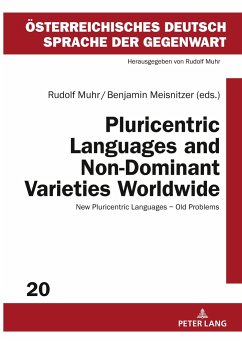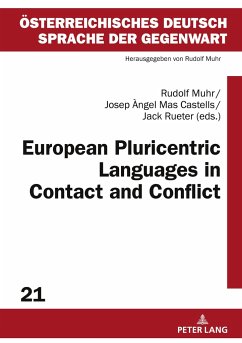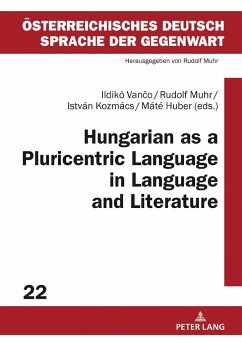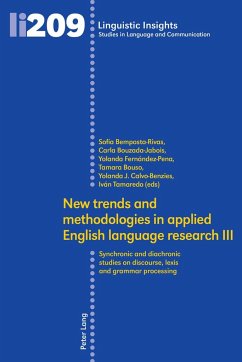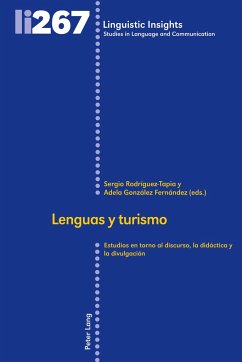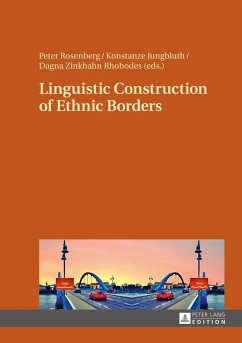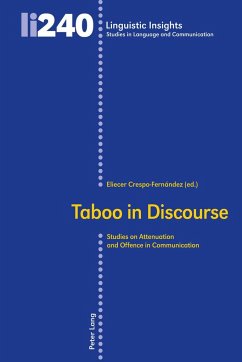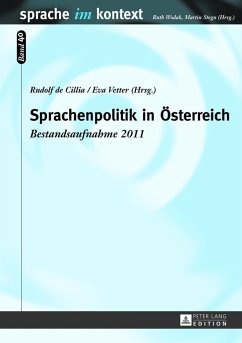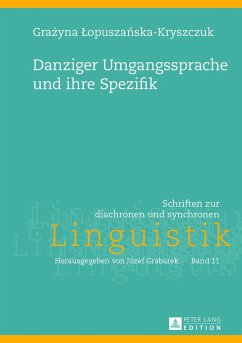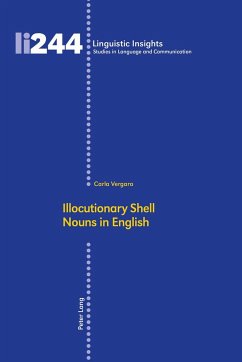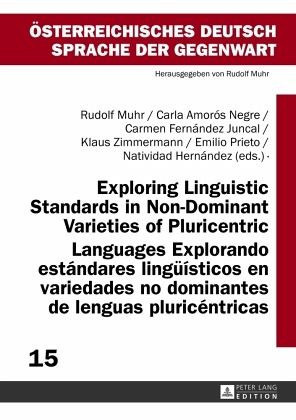
Exploring Linguistic Standards in Non-Dominant Varieties of Pluricentric Languages- Explorando estándares lingüísticos en variedades no dominantes de lenguas pluricéntricas
Versandkostenfrei!
Versandfertig in 6-10 Tagen
102,85 €
inkl. MwSt.

PAYBACK Punkte
0 °P sammeln!
This volume commemorates the 20th anniversary of Michael Clyne's seminal volume «Pluricentric languages. Differing norms in different countries» published in 1992. The main focus of this volume is the exploration of linguistic standards in non-dominant varieties and the discovery of the ways in which different language communities of non-dominant varieties reconcile their wish to express their national, social and personal identity via language with their desire to adhere to a common language. Another central focus is the way in which the norms of languages, and in particular those of non-do...
This volume commemorates the 20th anniversary of Michael Clyne's seminal volume «Pluricentric languages. Differing norms in different countries» published in 1992. The main focus of this volume is the exploration of linguistic standards in non-dominant varieties and the discovery of the ways in which different language communities of non-dominant varieties reconcile their wish to express their national, social and personal identity via language with their desire to adhere to a common language. Another central focus is the way in which the norms of languages, and in particular those of non-dominant varieties of pluricentric languages, can be standardized or how given standards can be changed. The papers show that the state of standardization in pluricentric languages may differ strongly from language to language and also differ between varieties of the same language.
El libro conmemora el vigésimo aniversario del influyente volumen publicado por Michael Clyne en 1992, «Pluricentric languages. Differing norms in different countries». El objetivo principal consiste en «explorar estándares lingüísticos en variedades no dominantes» e indagar cómo las diferentes comunidades lingüísticas reconcilian la pretensión de expresar su propia identidad nacional, social y personal a través del lenguaje con su mismo deseo de adherencia a una lengua común. Otra cuestión central atiende a la manera en que las normas lingüísticas y, en particular, las normas de las variedades lingüísticas de lenguas pluricéntricas pueden convertirse en estándares o cómo los estándares establecidos pueden ser modificados. Los diversos artículos muestran que la situación y el grado de estandarización en las diversas lenguas pluricéntricas pueden diferir en gran manera entre las distintas lenguas y entre variedades diferentes de una misma lengua.
El libro conmemora el vigésimo aniversario del influyente volumen publicado por Michael Clyne en 1992, «Pluricentric languages. Differing norms in different countries». El objetivo principal consiste en «explorar estándares lingüísticos en variedades no dominantes» e indagar cómo las diferentes comunidades lingüísticas reconcilian la pretensión de expresar su propia identidad nacional, social y personal a través del lenguaje con su mismo deseo de adherencia a una lengua común. Otra cuestión central atiende a la manera en que las normas lingüísticas y, en particular, las normas de las variedades lingüísticas de lenguas pluricéntricas pueden convertirse en estándares o cómo los estándares establecidos pueden ser modificados. Los diversos artículos muestran que la situación y el grado de estandarización en las diversas lenguas pluricéntricas pueden diferir en gran manera entre las distintas lenguas y entre variedades diferentes de una misma lengua.





